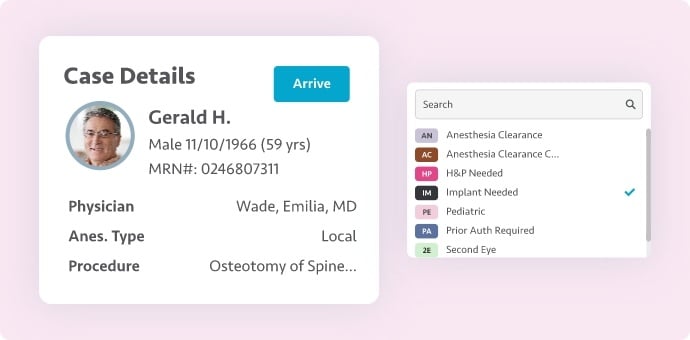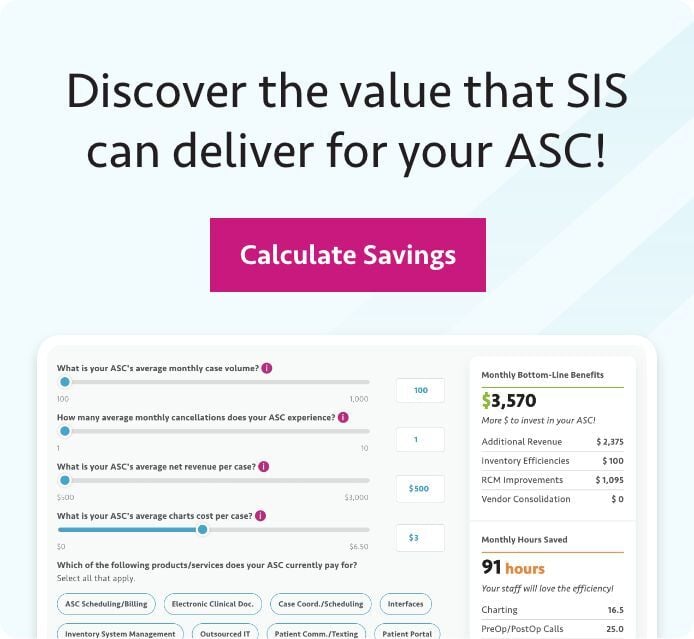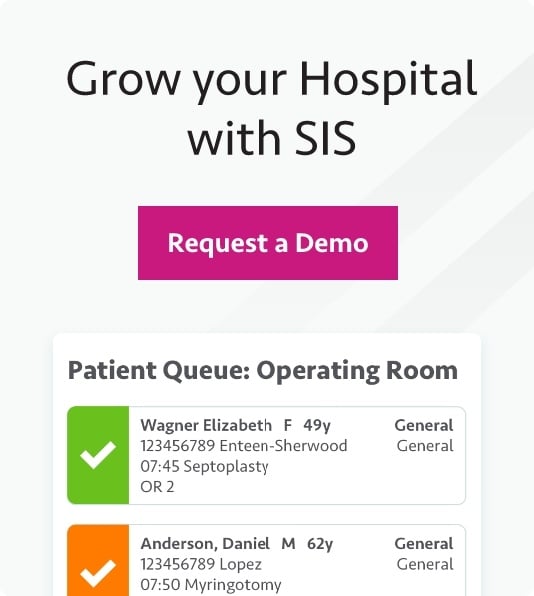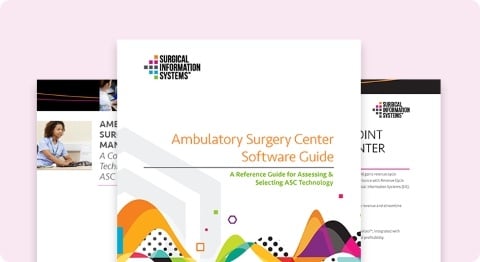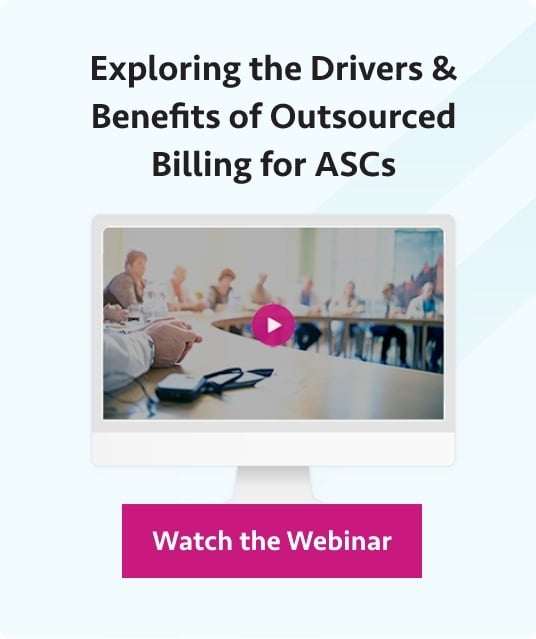Q&A with Yunette Ruiz, Client Service Manager, and Gabriella DeSantis, Revenue Cycle Manager, from the
Surgical Information Systems Revenue Cycle Services Team
Yunette Ruiz, Client Service Manager, and Gabriella DeSantis, Revenue Cycle Manager, for Surgical Information Systems (SIS), recently hosted a webinar on "Playing By the Rules: How to Achieve ASC Revenue Cycle Compliance." During the program, they discussed many ASC revenue cycle compliance issues, including the importance of compliance; challenges like the No Surprises Act, payer policies, coding complexities, implants and biologics, and patient collections; ways to strengthen compliance; the value of monitoring and auditing; and resources that can aid with compliance.
The large audience was engaged and asked great questions during the Q&A portion of the program. For those questions Ruiz and DeSantis did not have time to answer, they provided responses in writing. Below are the highlights of those questions and responses, edited for readability. The webinar can be viewed on-demand.
Q: What is the most efficient way to track and monitor claim denials?
A: There are a few ways you can track and monitor claim denials. One method that is often used is through clearinghouse. Many clearinghouses will have an option to monitor rejections and denials. They can even break down percentages in those areas, such as the most common rejection, which payer is denying claims, and what percentage of denials you have after the first pass or after it's cleared through the clearinghouse. Make sure you're looking at that reporting and sharing the feedback with your team.
Report options may also be available with transaction codes. Depending on how you're posting the payments in your software, if you're using specific ledger codes for any denials posted, you can also leverage that in your reporting. Reporting by ledger code can help distinguish your top denials. It can also display month-over-month data, highlighting which denials require the most attention and revealing any trends or issues with your payer contracts.
Finally, rely on your team's feedback. They have firsthand experience with working denials and rejections. Make sure they feel comfortable coming to leadership to report trends and make recommendations, such as researching an issue further or contacting a contract representative to discuss and hopefully fix whatever is happening on the back end with a payer.
Q: Does the No Surprises Act also apply to in-network patients?
A: While the No Surprises Act specifically addresses the issues with the surprise billing concerning out-of-network and self-pay patients, it includes provisions that also protect the benefits of in-network patients simply by ensuring that there are fair billing and collection practices. These increase the transparency between facilities and their patients by providing those cost estimates upfront to the patients.
Q: Most of our payer contracts permit billing solely according to the CMS global surgery policy. They do not pay separately for supplies. Do you recommend we bill for items we know will not be reimbursed?
A: It is not advisable to bill for items that are not reimbursable as doing so could inflate your accounts receivable (A/R). It could also lead to inaccurate reporting. If you're reporting expected revenue, you want to make sure you're not over-inflating revenue or painting an untrue picture of your revenue.
Q: How can I best ensure full reimbursement for the implants used at our ASC?
A: This is such an important topic. There are a few steps you can take to help ensure full reimbursement. First and foremost, make sure your contracts have the necessary language. During the first round of negotiating managed care contracts, most payers are not going to want to cover implants. After all, they're generally expensive. Your contracts should include carve-outs if you're doing any cases with high-cost items, such as total joints, InterStims, or UroLifts.
You should secure language surrounding the revenue codes used with the implants. Most implant codes will require revenue code of 0278, while drug codes will typically require 0636. You want to make sure drugs are covered as well. We are seeing more high-cost medications used, and ASCs should seek reimbursement for them as well.
Next, secure implant invoices so you can provide them to the payers. Payers are increasingly asking for invoices and documentation to pay for implants.
Finally, ensure you are billing with the appropriate HCPCS codes, the appropriate units, and then the appropriate pricing. For example, let's say you use three of an item but only document one unit. You're potentially losing two-thirds of the payment you could have secured.
Q: Where can I find information on state laws about ASC billing?
A: There are multiple ways to find out your state laws concerning ASC billing. The first step is to leverage your relevant regulatory body, whether that be the department of health, medical board, and/or the insurance department for your state. They will often have a wealth of information.
You can also check your state government and legislative websites. They often have search engines where you can use keywords such as "ambulatory surgery center," "ASC billing," and "healthcare billing" — anything along those lines — to find the laws in place.
Use professional organizations as well, such as the Ambulatory Surgery Center Association (ASCA) or state-specific ASC and medical associations. They will often summarize any relevant laws that have been recently released.
Finally, you can always consult your legal counsel. They can often provide specific information on laws and dig into exactly how those laws are applied.
Q: What revenue cycle areas should we be auditing in my ASC?
A: Many areas, including coding, verification, billing, insurance A/R follow up, patient A/R, and payment posting. Each of these areas has the power to affect the others and are of equal importance. It's also just as important to share your auditing results with your team for transparency and to identify improvement opportunities.




